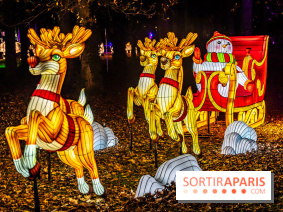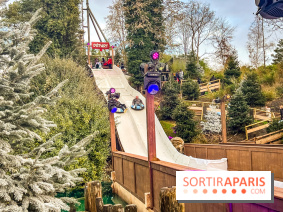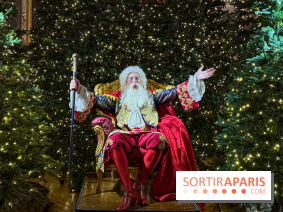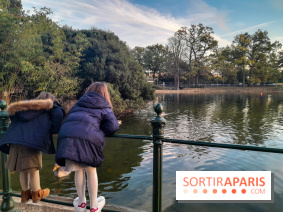Do you live in Hauts-de-Seine and want to take part in the Fête de la Science in your département, from October 3 to 13, 2025? It's possible! And with good reason, many establishments are taking part in this cultural event, inviting you, in participating towns at any rate, to learn more about science and its many fields, through numerous activities and events for the whole family.
Whether you're interested in physics, chemistry, mathematics, biology, geology,anthropology or paleontology, there's something for everyone! And, as every year, the Fête de la Science is an opportunity not only to inspire young people to take up science, but also and above all to raise their awareness of the sciences and the tools that enable us to improve our impact on the environment.
Meudon, Courbevoie, Nanterre, Rueil-Malmaison... All these towns are also taking part in the event, with conferences, tours, festivals and escape games! It's a great opportunity to get out on the town with the kids, free of charge, and learn all about science and its applications. All that's left to do is make your selection, folks!
Fête de la Science 2025 in Paris and Ile-de-France: the program of free events
The Fête de la Science is back from October 3 to 13, 2025 for its 34th edition! The idea? A week dedicated to scientific culture, with numerous free events all over France. Experiments, shows, open houses, visits and a host of workshops, open to all and adapted to children, await you in the four corners of Paris and the Île-de-France region! [Read more]
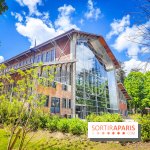


 Fête de la science 2025 in Meudon (92), the program of events in the town
Fête de la science 2025 in Meudon (92), the program of events in the town
In Meudon (92), the Fête de la Science opens the doors of its emblematic sites to astronomy, innovation and scientific heritage. Discover the program for the 2025 edition. [Read more]
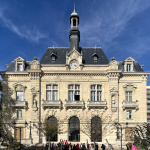


 Fête de la Science 2025 in Colombes (92): the program of events
Fête de la Science 2025 in Colombes (92): the program of events
Discover the Fête de la science 2025 program in Colombes (Hauts-de-Seine): workshops, exhibitions and free events for young and old. An ideal way to explore science, history and local heritage in the Paris region. [Read more]

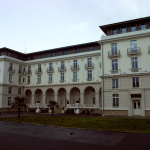

 Fête de la Science 2025 at CNRS Meudon (92): the festive program
Fête de la Science 2025 at CNRS Meudon (92): the festive program
In Meudon, the CNRS is taking part in the Fête de la Science 2025 by opening its doors to the public: discover living science in an emblematic research facility. Here's the program! [Read more]
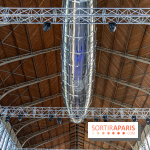


 Fête de la Science 2025: the program at Hangar Y (92)
Fête de la Science 2025: the program at Hangar Y (92)
The Fête de la Science returns throughout France from October 3 to 13, 2025. For residents of the Hauts-de-Seine department, head to Hangar Y on Saturday October 11 and Sunday October 12 to enjoy lectures, film screenings, a children's show, workshops and other activities. [Read more]
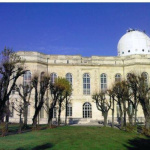


 Fête de la Science 2025 at Paris Observatory: astronomy on the Meudon campus (92)
Fête de la Science 2025 at Paris Observatory: astronomy on the Meudon campus (92)
The Fête de la Science awaits you on October 11, 2025 at the Paris Observatory, on the Meudon campus, to explore the vast world of astronomy through family workshops. [Read more]
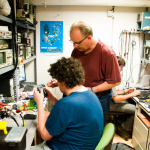


 Fête de la Science 2025: immersive experience at Electrolab - hackerspace in Nanterre (92)
Fête de la Science 2025: immersive experience at Electrolab - hackerspace in Nanterre (92)
The Fête de la Science 2025 returns from October 3 to 13 throughout France. In Nanterre, the Electrolab opens its doors from October 9 to 11 for a weekend of workshops, experiments and scientific encounters. [Read more]
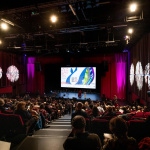


 Festival Atmosphères 2025: the free cultural program for the Fête de la Science
Festival Atmosphères 2025: the free cultural program for the Fête de la Science
The Atmosphères Festival returns to Courbevoie for its 15th edition from October 8 to 12, 2025, offering free cinema, arts and science around the theme of sustainable development. [Read more]
Happy Fête de la Science, folks!
Dates and Opening Time
From October 3, 2025 to October 13, 2025
Prices
Free
Official website
www.fetedelascience.fr



 Fête de la Science 2025 in Paris and Ile-de-France: the program of free events
Fête de la Science 2025 in Paris and Ile-de-France: the program of free events